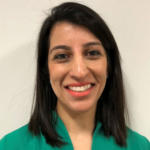
Three years after its publication, Kiran Kenth, Director of National and Regional Programmes at RSPH, considers the impact of the ‘Rethinking the Public Health Workforce’ report.
It’s been three years since we launched the Rethinking the Public Health Workforce report jointly with the Centre for Workforce Intelligence (CfWI) and supported Department of Health (DoH), Health Education England (HEE) and Public Health England (PHE).
RSPH has a long history of supporting workforces and communities to build their skills to improve health and wellbeing. However, the report helped us re-discover the depth and breadth of untapped potential which professions and organisations beyond public health have in supporting health improvement and preventing ill health.
We identified approximately 20 million people in England who within their pre-existing roles could positively impact the health and wellbeing of the population. This covers 57 occupation groups, encompassing a broad range of the public, private and voluntary sectors, as well as 5 million people providing unpaid care and support to family or friends with disability, illness or poor mental health problems.
What was most striking was to see how many non-health organisations had already identified the role they play in furthering public health and were able to articulate how it helped them to achieve their own objectives.
For example, the Foundation Independent Living Trust's (FILT) Warm Homes Service had successfully embedded a health assessment function within their home visits which in the winter 2012/2013 resulted in 1,184 referrals across 160 local authority areas for people suffering from conditions such as arthritis, diabetes, COPD, heart disease, dementia, depression and asthma. For every £1 spent, the service levered in £2.10 in other funding.
We managed to collate 30 wider workforce cases studies, each showcasing innovation and shedding light into why health really is everybody’s business. This is why we feel this newsletter is important. We want to create a platform which supports the wider workforce to continue innovating, discover partnerships and unleash their potential in public health.
So what has happened since the report? I think a great deal.
To mention a few key highlights:
- Healthy Living Pharmacy Level 1 - we have been working in collaboration with PHE to set up the national Healthy Living Pharmacy Level 1 registry and quality assurance scheme. One of the main achievements of this project so far has been the development of pharmacies' public health functions, including the provision of health and wellbeing advice
- Accreditation - we have accredited a number of training programmes supporting the wider the workforce, including the Professional Association for Childcare and Early Years (PACEY) Level 2 Food Safety and Hygiene for Early Years Settings e-learning programme. These are particularly suitable for those with childcaring responsibilities
- Qualifications - we launched a new qualification for the wider workforce, the RSPH Level 2 Award in Improving the Public Health qualification provides individuals with knowledge and understanding of the principles of health improvement and mental health and wellbeing.
- Connect 5 training - we are currently working with PHE and HEE to deliver a train-the-trainer programme on Connect 5, a mental health promotion programme which develops frontline staff skills and confidence to support their clients’ mental health and wellbeing. So far 64% of the training rolled out by our trainers has been with wider workforce.
- Exercise professional workforce report - we launched the Going the Distance report in collaboration with ukactive which focuses on the exercise professional workforce (EPW) and how it can play an enhanced role in supporting the public’s health. One of the main elements of the report is the evidence of a strong appetite from professionals and the public alike for a greater public health role for the EPW, with 81% of exercise professionals saying they would be willing to deliver advice on a broader range of health issues, and a significant proportion of the public saying they would be comfortable receiving health advice from personal trainers (83%) and group exercise leaders (74%)
- Emergency Services Hub - we have developed the Emergency Services Hub with PHE which gathers together a host of resources and information for three emergency services of ambulance, fire and rescue, and police. We launched this just a few weeks ago, but reception has been overwhelmingly positive with many stakeholders interested in supporting it and being part of it
- Communities in Charge of Alcohol - we have developed a regional programme across greater Manchester as part of the population health care agenda by developing a bespoke communities in charge of alcohol programmes, training health champions and community workforces in community resilience, alcohol and brief intervention. This is a pioneering programme built on an assets-based approach to community wellbeing
Change is happening and it’s even more important to build on RSPH's existing work. We must capture what is happening across regional systems where we can and share what we learn. We should also try our hardest to create a space for more innovation and collaborative working so we can do more and at work at scale and outside of the traditional public health box.
If we can also start to reimagine the future for health improvement by bringing together the diverse range of leaders and organisations both from the corporate world, philanthropy, real systems leadership and unite in vision, voice and practice, that would really support the sea change that is required.
We will be working with a range of collaborators and networks over the forthcoming months and together commit to supporting the wider workforce.



